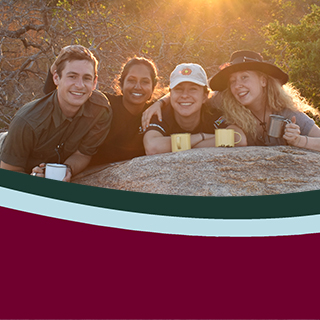Fall 2016 Seminars
Can Giving Change the World?: Engaging Social Responsibility through Philanthropy
Mondays, Wednesdays, Fridays 11:00-11:50am
Greg Larson, Communication Studies
This course examines the relationship between the individual and society by addressing the question: How do individuals and organizations address pressing and enduring social problems to create meaningful change? Through the lens of philanthropy, this course introduces students to social responsibility and some of the big problems facing society. We will learn about how donating money to charitable causes is building the philanthropic movement at local, national and global levels to combat the most pressing contemporary challenges facing society such as poverty, environmental degradation, and disease. Students will engage as community grant-makers allocating $10,000 of funding to local nonprofit organizations.
Deliberative Democracy
Tuesdays and Thursdays 11:00am-12:20pm
Cassie Hemphill, Applied Arts and Sciences
This course introduces you to the theory and practice of deliberative democracy, the principle that more sustainable decisions can be reached through meaningful, shared deliberation on controversial issues. Through case studies that span the globe, you will learn how deliberative democracy has been used in a variety of fields to allocate limited resources, embrace diversity, and create feasible, practical solutions. You’ll practice deliberation in the classroom to build your skills in effective listening, facilitation, and discourse. You’ll leave the course with the ability to improve governance and help solve society’s most challenging problems.
Identity in Focus: Russian and American Perspectives
Tuesday 8:00am-10:50am
Clint Walker, Modern and Classical Languages and Literatures
Sean O’Brien, Film Studies
Who am I? Who are we? How are we and I related to one another? Few nations in the modern era have been as obsessed with questions of personal and national identity as the Russians and the Americans. This course will take two separate but related approaches to grappling with Russian and American formulations of these questions. The first will involve reading several classic works of Russian and American fiction and watching films that explore issues related to personal, group, ethnic and national identity. The second will provide students with the tools and training to produce a video short in which they will give artistic expression to their own understanding of a certain aspect of identity related to one or both of the two countries.
News Literacy: Truth v. Truthiness
Monday, Wednesday 9:30-10:50am
Ray Fanning, School of Journalism
From traditional media, to the Internet, to mobile devices, you’re buried in waves of information every day. But how do you know what is reliable and what is fake? Truth v. Truthiness will help you become a smarter news consumer and a more active citizen, locally, nationally and globally. Democracy doesn’t work without an informed public, so the emphasis is on building critical thinking skills. You will learn how to deconstruct the news and get to the truth; to see the difference between assertion and verification; and to cut through the spin and bias. Plus, you’ll learn how the news media and informed citizens have changed the course of history from the Revolutionary War to the Arab Spring.
Reimagining Global Health: Biosocial Perspectives
Tuesdays and Thursdays 12:30-1:50pm
Gilbert Quintero, Anthropology
This course will examine a set of global health problems rooted in rapidly changing social structures, cultural beliefs and practices, and environmental and biological realities that transcend geopolitical and other imagined boundaries. Students will explore case studies (addressing Ebola, tuberculosis, mental illness, and other topics) and a multidisciplinary literature (including anthropology, epidemiology, history, and biomedicine) centering on how biosocial perspectives might provide a foundation to improve health and well-being on a global level.
Social Interactions, Relationships and Human Well-Being
Tuesdays and Thursdays 2:00pm-3:20pm
Steve Yoshimura, Communication Studies
Friends, family members, and romantic partners provide opportunities to exchange many positive experiences, including kindness, affection, gratitude, humor, love, and forgiveness. However, these same relationships can also sometimes cause considerable amounts of stress from conflict, betrayal, rejection, and loss. This paradox gives rise to an important question: How do we communicate and interact with others in ways that maximize our health and well-being, even in the face of difficult relationship situations? In this course, we will discuss the variety of ways in which human well-being can be defined, and will examine how acts of social support, humor, kindness, gratitude, affection, love, forgiveness, and altruism can, under the right conditions, enhance the well-being of individuals, groups, and large societies.
